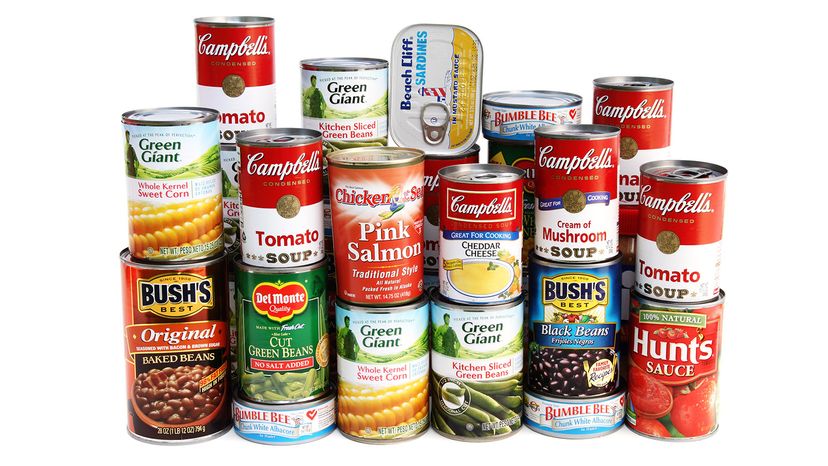The most recent concern about canned foods, however, isn't the food; it's the cans and what they're lined with, including Bisphenol A (BPA). Over the past two decades, public attention has focused on BPA, the chemical used to make polycarbonate plastics and epoxy resins. In 2008, the U.S. government's National Toxicology Program concluded there was concern about its effect on our brains, behavior, and prostate glands of fetuses, infants and children. Other studies have linked BPA to cardiovascular disease, obesity, asthma and diabetes.
BPA exposure is widespread; the Centers for Disease Control found BPA in 93 percent of the urine samples of more than 2,500 people aged 6 and older. BPA can leach from containers (including cans) into food and drinks, and so plastics and canning manufacturers have worked to develop replacement materials.
The Can Manufacturers Institute says more than 90 percent of food cans today are lined with new, BPA-free materials, such as polyesters, acrylics and PVC. (That 90 percent figure just refers to food cans — it doesn't include canned drinks or bottle caps.)
"Major food companies have been moving over to polyester and acrylic linings in an attempt to get rid of the BPA in their cans. However, the safety of some of the substitutes being used is still up for debate," Nidhi Ghildayal, Ph.D., an infectious disease specialist at the University of Minnesota School of Public Health, says in an email. For example, PVC is made from vinyl chloride, a known carcinogen.
Sarah Geller, a senior research and database analyst at the Environmental Working Group, agrees. "We don't have a lot of data about how these materials are used because the formulas are protected by trade secrets," she says. "And even though cans with newer linings can help you avoid endocrine disruptors, they may not be good for the environment. Some materials don't degrade."
If you're concerned about contamination from canned foods, Geller recommends using fresh, frozen or dried food instead of canned. But if you simply can't get away from the convenience of canned foods, absolutely don't heat the food in the can. Finally, some compounds, including BPA, have become such pervasive contaminants in the environment that it's getting harder to avoid, no matter what your food is packaged in. "Detectable amounts of BPA may make it into otherwise BPA-free cans from other sources, including the food itself," Geller says.



